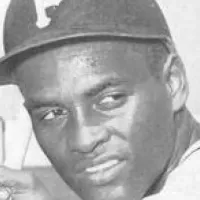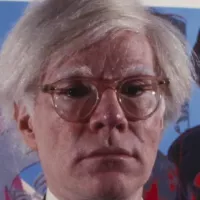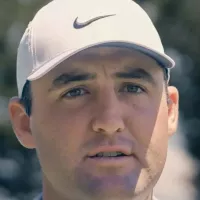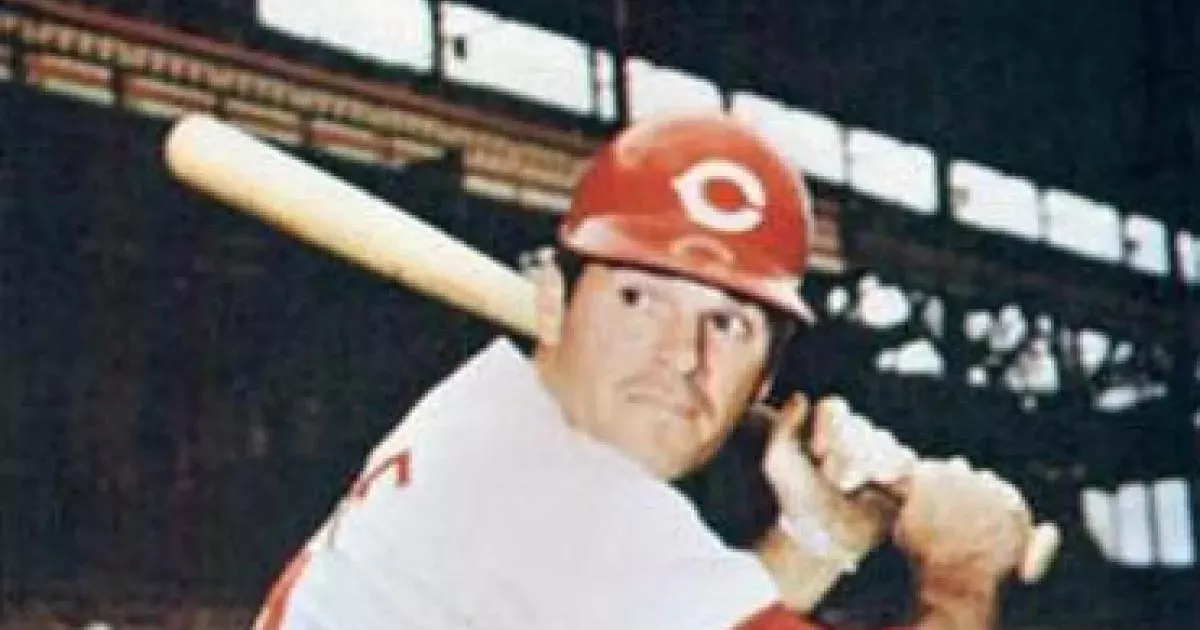Pete Rose, nicknamed "Charlie Hustle," was a prominent MLB player and manager. Best known for his time with the Cincinnati Reds' "Big Red Machine" in the 1970s, he also played for the Philadelphia Phillies and Montreal Expos. Rose is MLB's all-time leader in hits (4,256) and several other categories. He won three World Series championships and an MVP award. As a manager for the Reds (1984-1989) his career was overshadowed after receiving a lifetime ban from baseball in 1989 for betting on baseball games.
1940: First Championship since 1940
In 1975, Rose earned World Series MVP honors in leading the Reds to their first championship since 1940.
April 14, 1941: Peter Edward Rose Sr. Born
Peter Edward Rose Sr., nicknamed "Charlie Hustle", was born on April 14, 1941. He would become a professional baseball player and manager.
1960: Played in Dayton Amateur League
In the spring of 1960, Pete Rose played in the Dayton Amateur League for a team sponsored by Frisch's Big Boy of Lebanon, Ohio, achieving a .626 batting average.
1960: Signed Professional Contract
Upon graduation from high school in 1960, Pete Rose signed a professional contract for $7,000 with the Cincinnati Reds.
April 8, 1963: Major League Debut
On April 8, 1963, Pete Rose made his Major League debut against the Pittsburgh Pirates at Crosley Field and drew a walk in his first plate appearance.
1963: Entered United States Army Reserves
After the 1963 baseball season, Pete Rose entered the United States Army Reserves, serving at Fort Knox and Fort Thomas.
1963: Received "Charlie Hustle" Nickname
During a spring training game against the New York Yankees in 1963, Whitey Ford gave Pete Rose the nickname "Charlie Hustle".
1963: Opportunity Due to Injury
During a spring training game in 1963, Pete Rose got his chance to play when the Reds' regular second baseman, Don Blasingame, was injured.
1963: Began MLB Career
In 1963, Pete Rose began his Major League Baseball (MLB) career.
January 25, 1964: Marriage to Karolyn Englehardt
On January 25, 1964, Pete Rose married Karolyn Englehardt. The couple had two children, daughter Fawn and son Pete Rose Jr.
April 23, 1964: Scored Winning Run
On April 23, 1964, Pete Rose reached first base on an error and scored the winning run against the Houston Colt .45's, contributing to Ken Johnson losing a complete game no-hitter.
1964: Slumped Late in Season
Pete Rose slumped late in the 1964 season, resulting in him being benched and finishing with a .269 average, leading him to play in the Venezuelan Winter League to improve his batting.
1965: Led League in Hits
In 1965, Pete Rose led the league in hits (209) and at-bats (670), finishing sixth in NL MVP balloting and starting his streak of ten seasons with 200-plus hits.
1966: Career-High Home Runs
In 1966, Pete Rose hit a career-high sixteen home runs.
1968: Won Batting Title
In 1968, Pete Rose started the season with a 22-game hitting streak, missed three weeks with a broken thumb, had a 19-game hitting streak late in the season, and won his first National League batting title with a .335 average.
1968: Top Five MVP
In 1968, Rose finished in the top five vote-getters for the National League's Most Valuable Player.
1969: Won Gold Glove Award
In 1969, Pete Rose won his first Gold Glove Award as an outfielder.
1969: Birth of Son Pete Rose Jr.
In 1969, Pete Rose's son, Pete Rose Jr., was born.
1969: Top Five MVP
In 1969, Rose finished in the top five vote-getters for the National League's Most Valuable Player.
1969: Expansion of Playoffs
The 1976 club remains the only team since the expansion of the playoffs in 1969 to go undefeated in the postseason.
July 14, 1970: All-Star Game Collision
On July 14, 1970, Pete Rose was involved in an infamous play at Riverfront Stadium in the All-Star Game, colliding with Ray Fosse at home plate to score the winning run, resulting in a shoulder injury for Fosse.
1970: World Series Appearance
In 1970, Pete Rose played in one of his six World Series games. In 67 postseason games, he had a .321 batting average.
1970: Won Gold Glove Award
In 1970, Pete Rose won his second Gold Glove Award as an outfielder.
1972: Fosse played with the indians until this season
Ray Fosse played with the Indians until the 1972 season, but never approached his first-year numbers.
1973: Won NL MVP Award
In 1973, Pete Rose led the league with 230 hits and a .338 batting average, winning the NL MVP award and leading "the Big Red Machine" to the National League Championship Series.
1973: National League's Most Valuable Player
In 1973, Rose was voted the National League's Most Valuable Player.
1975: Mention of 1975 World Series
At WrestleMania XIV in 1998, Pete Rose taunted the Boston crowd about the Reds beating the Red Sox in the 1975 World Series.
1975: Moved to Third Base and Won World Series MVP
In 1975, Pete Rose moved to third base for the Reds and earned World Series MVP honors, leading the team to their first championship since 1940 in a seven-game triumph over the Boston Red Sox. He was also awarded the Hickok Belt as the top professional athlete of the year, as well as Sports Illustrated magazine's "Sportsman of the Year" award.
1975: Top Five MVP
In 1975, Rose finished in the top five vote-getters for the National League's Most Valuable Player.
1976: Repeated as World Series Champion
In 1976, Pete Rose was a major force in helping the Cincinnati Reds repeat as World Series champions.
1976: Top Five MVP
In 1976, Rose finished in the top five vote-getters for the National League's Most Valuable Player.
1976: Reds Swept NLCS and World Series
In 1976, the Cincinnati Reds swept the Philadelphia Phillies in the NLCS and the New York Yankees in the World Series.
1976: Phillies Won National League East
The Philadelphia Phillies had won the National League East three years running (1976–1978)—two of which were won with 101-win seasons
April 29, 1978: Career-High Three Home Runs
On April 29, 1978, Pete Rose hit a career-high three home runs against the New York Mets at Shea Stadium.
June 14, 1978: Began Hitting Streak
On June 14, 1978, Pete Rose singled off Cubs pitcher Dave Roberts, beginning a hitting streak that lasted until August 1 and making a run at Joe DiMaggio's record.
1978: Rose meets Tommy Gioiosa
In 1978, Pete Rose met Tommy Gioiosa during spring training. Gioiosa later became a companion and runner to Rose for six years before bringing Rose to his gym in 1984.
1978: Referenced in Zanzibar by Billy Joel
In 1978, Pete Rose was referenced in the lyrics of the song "Zanzibar" originally released by Billy Joel on the 52nd Street album.
1978: Paternity Suit Filed
In 1978, a paternity suit was filed naming Pete Rose as the father of Morgan Erin Rubio.
1978: Phillies Won National League East
The Philadelphia Phillies had won the National League East three years running (1976–1978)—two of which were won with 101-win seasons
1979: Signed with Phillies
In 1979, Pete Rose signed a four-year, $3.2-million contract with the Philadelphia Phillies, becoming the highest-paid athlete in team sports at the time.
1979: Led league in on-base percentage
In 1979, Rose led the league in on-base percentage.
1980: MLB Refuses Participation in Phillies Anniversary
In 1980, MLB refused to allow Pete Rose to participate in 1980 Phillies anniversary celebrations.
1980: Won First World Series Title
In 1980, Pete Rose and the Philadelphia Phillies won their first World Series title.
1980: World Series Championship with the Phillies
In 1980, Pete Rose won his third World Series championship, playing for the Philadelphia Phillies.
1980: Divorce from Karolyn Englehardt
In 1980, Pete Rose's marriage to Karolyn Englehardt ended in divorce.
1981: Phillies Earned Division Title
In 1981, the Phillies earned a division title in the first half of the strike-shortened season.
October 1983: Granted Release from Phillies
In late October 1983, Pete Rose was granted an unconditional release from the Philadelphia Phillies after refusing a more limited playing role.
1983: Improvement over 1983 Season
Despite his .259 average for the season prior to joining the Reds, he hit .365 for the Reds in 26 games (with 35 hits and 11 RBIs), finishing with a .286 overall average—a 41-point improvement over the 1983 season.
1983: Worst Season of Career
In 1983, Pete Rose had the worst season of his career, batting only .245 and finding himself benched during the latter part of the season with the Phillies, though he did blossom as a pinch-hitter.
April 13, 1984: 4,000th Career Hit
On April 13, 1984, Pete Rose doubled off the Phillies' Jerry Koosman for his 4,000th career hit, becoming the second player in the 4,000 hit club.
August 15, 1984: Traded Back to Reds
On August 15, 1984, the Montreal Expos traded Pete Rose back to the Cincinnati Reds for infielder Tom Lawless and Rose was immediately named player-manager.
1984: Marriage to Carol J. Woliung
In 1984, Pete Rose married his second wife, Carol J. Woliung, a former Playboy Bunny and Philadelphia Eagles cheerleader.
1984: Rose Introduced to Gold's Gym
In 1984, Tommy Gioiosa brought Pete Rose to his Gold's Gym in Cincinnati, where Gioiosa managed the gym and sold anabolic steroids.
1984: Signed with Expos
Months after being released, in 1984, Pete Rose signed a one-year contract with the Montreal Expos.
September 11, 1985: Rose Breaks Cobb's All-Time Hits Record
On September 11, 1985, Pete Rose achieved his 4,192nd hit, surpassing Ty Cobb's all-time hits record, with a single off Eric Show of the San Diego Padres. ABC's Wide World of Sports subsequently named Rose their Athlete of the Year.
1985: Start as Reds Manager
In 1985, Pete Rose began his first full season as manager of the Cincinnati Reds. During his four full seasons at the helm (1985–1988), the Reds posted four second-place finishes in the NL West division.
1985: Andy Warhol screenprint
In 1985, pop-artist Andy Warhol produced a limited edition screenprint in which Rose was the subject.
1985: Report of Corked Bats
In 2010, Deadspin reported that during his 1985 pursuit of Cobb's record, Rose allegedly used corked bats during games.
1985: Dowd Report Alleges Gambling Activities
The Dowd Report documented Pete Rose's alleged gambling activities in 1985.
August 17, 1986: Rose's Final Career At-Bat
On August 17, 1986, Pete Rose had his final career at-bat, resulting in a strikeout against Goose Gossage of the San Diego Padres.
November 11, 1986: Rose Dropped from Roster and Unofficially Retires
On November 11, 1986, Pete Rose was dropped from the Cincinnati Reds' roster and unofficially retired as a player, concluding his career with a .303 lifetime batting average.
1986: Rose retired
In 1986, Pete Rose retired with the highest modern-day career fielding percentage for a right fielder at 99.14% and the highest National League modern-day career fielding percentage for a left fielder at 99.07%.
1986: End of MLB Playing Career
Pete Rose's MLB playing career ended in 1986.
1986: Dowd Report Alleges Gambling Activities
The Dowd Report documented Pete Rose's alleged gambling activities in 1986.
April 26, 1987: Rose Bets on Other Sports
On April 26, 1987, Pete Rose allegedly placed bets on hockey and basketball games but no baseball games, as detailed in a notebook on Rose's daily betting activity.
1987: Dowd Report Alleges Betting on Baseball
The Dowd Report documented Pete Rose's alleged betting on baseball games in 1987, citing that Rose wagered a minimum of $10,000 a day.
April 30, 1988: Rose Ejected After Altercation with Umpire
On April 30, 1988, during a game against the New York Mets, Pete Rose was ejected after forcefully pushing umpire Dave Pallone twice during an argument over a call. The incident led to a fifteen-minute suspension of the game.
1988: Rose's Fourth Season as Manager
In 1988, Pete Rose managed his fourth full season as the Reds manager. During his four full seasons at the helm (1985-1988), the Reds posted four second-place finishes in the NL West division.
February 1989: Rose Questioned About Betting
In February 1989, Pete Rose was informally questioned by Commissioner Peter Ueberroth and A. Bartlett Giamatti about allegations of betting on baseball. Rose admitted to betting on other sports but denied betting on baseball.
March 21, 1989: Sports Illustrated Details Betting Allegations
On March 21, 1989, Sports Illustrated published a cover story detailing allegations that Pete Rose had placed bets on baseball games.
April 3, 1989: Sports Illustrated Cover Story Released
On April 3, 1989, Sports Illustrated released its cover story detailing the allegations that Pete Rose had been betting on baseball games.
August 1989: Permanent Ineligibility from Baseball
In August 1989, Pete Rose was penalized with permanent ineligibility from baseball due to accusations of gambling on baseball games.
August 24, 1989: Rose's Tenure as Reds' Manager Ends
On August 24, 1989, Pete Rose's tenure as manager of the Cincinnati Reds came to an end. As manager, he had a career record of 426–388.
September 1, 1989: Commissioner Giamatti Dies
On September 1, 1989, Commissioner A. Bartlett Giamatti died of a heart attack, eight days after announcing Pete Rose's suspension from baseball.
1989: Birth of Daughter Cara
In 1989, Pete Rose's daughter Cara was born two days before his banishment from MLB.
1989: End of Managing Career with the Reds
In 1989, Pete Rose's managerial career with the Cincinnati Reds came to an end.
April 20, 1990: Rose Pleads Guilty to Filing False Income Tax Returns
On April 20, 1990, Pete Rose pleaded guilty to two charges of filing false income tax returns for not reporting income from selling autographs and memorabilia and from horseracing winnings.
January 7, 1991: Rose Released from Prison
On January 7, 1991, Pete Rose was released from the minimum security prison camp at the United States Penitentiary in Marion, Illinois, after paying $366,041 in back taxes and interest and being required to perform 1,000 hours of community service, after being sentenced the prior year in July.
February 4, 1991: Hall of Fame Excludes Ineligible Players
On February 4, 1991, the Hall of Fame voted to exclude individuals on the permanently ineligible list from being inducted by way of the Baseball Writers' Association of America vote.
1991: Hall of Fame Ban for Ineligible Players
In 1991, the Baseball Hall of Fame formally voted to ban those on the "permanently ineligible" list from induction.
1991: Rose asks to repeal ban
In 2020, Pete Rose sent a petition to the Hall of Fame's board of directors, asking them to repeal their 1991 ban on players on the ineligible list.
1992: Rose Could Have Been on Writers' Ballot
Had he not been banned from baseball, Rose's name could have been on the writers' ballot beginning in 1992 and ending in 2006.
1992: Rose Applies for Reinstatement
In 1992, Pete Rose applied for reinstatement to baseball, but Commissioner Fay Vincent did not act on the application.
1996: Settlement of Paternity Lawsuit
In 1996, Pete Rose acknowledged that Morgan Erin Rubio was his daughter in a settlement of the paternity lawsuit.
1997: Son's Stint with the Reds
In 1997, Pete Rose's son, Pete Jr., advanced to the majors for an 11-game stint with the Reds, after spending 16 years as a minor league player.
September 1998: Rose Applies for Reinstatement Again
In September 1998, Pete Rose applied for reinstatement with Commissioner Bud Selig, but Selig also did not act on it.
1998: First WrestleMania Appearance
In 1998, Pete Rose made his first appearance at WrestleMania XIV as "guest ring announcer" before being Tombstone Piledrivered by Kane, starting a running gag at future WrestleManias.
1999: Participation in All-Century Team Introduction
In 1999, Pete Rose was allowed to participate in the pre-game introduction of the All-Century team before Game Two of the World Series, receiving the loudest ovation from the crowd at Turner Field in Atlanta, Georgia, despite never having been a member of the Braves.
1999: Selected for MLB All-Century Team
In 1999, Pete Rose was selected as an outfielder on the Major League Baseball All-Century Team after fans voted on the players using paper and online ballots.
2000: WrestleMania Appearance as Rikishi's Tag Team Partner
In 2000, Pete Rose appeared for a third time at WrestleMania 2000, as Rikishi's tag team partner, but again was thwarted by Kane.
December 2002: Dowd Believed Rose Bet Against the Reds
In December 2002, John Dowd stated in an interview that he believed Pete Rose probably bet against the Cincinnati Reds while managing them.
2002: Appearance During World Series
In 2002, Pete Rose appeared during the World Series in a Mastercard-sponsored event recalling "Baseball's Most Memorable Moments", where fans voted Rose's record-breaking hit over Ty Cobb as the sixth most memorable moment in baseball history.
March 2003: Selig Considers Rose's Application
In March 2003, Commissioner Bud Selig acknowledged that he was considering Pete Rose's application for reinstatement, but ultimately took no action.
January 8, 2004: Rose Admits to Betting in Autobiography
On January 8, 2004, in his autobiography My Prison Without Bars, Pete Rose admitted publicly to betting on baseball games and other sports while playing for and managing the Reds. Rose stated that he hoped his admissions would help end his ban from baseball so he could reapply for reinstatement.
2004: Admission of Betting on Baseball
After years of denial, in 2004, Pete Rose admitted that he bet on baseball and on the Reds.
2004: Rose's Gambling Violation Described
Even after his 2004 admission of gambling, Pete Rose had described his violation of MLB rules with a defiant attitude.
2004: Induction into WWE Hall of Fame
In 2004, Pete Rose was inducted into the "Celebrity Wing" of the WWE Hall of Fame class of 2004 by Kane, being the first celebrity to enter the Hall.
2004: Criticism After Admission of Gambling
In 2004, following Pete Rose's admission of gambling, some supporters were outraged that he would reverse fifteen years of denial, particularly due to the timing of the admission relative to the Hall of Fame announcement.
2006: Rose Could Have Been on Writers' Ballot
Had he not been banned from baseball, Rose's name could have been on the writers' ballot beginning in 1992 and ending in 2006.
March 2007: Rose Discusses Betting on His Team
In March 2007, during an interview on The Dan Patrick Show on ESPN Radio, Pete Rose admitted that he bet on his team every night to win, stating he did everything in his power to win that game.
2007: Rose eligible for Veterans Committee
Pete Rose would have been eligible for consideration by the Veterans Committee in 2007, but did not appear on the ballot.
2008: Veterans Committee Bars Ineligible Players
In 2008, the Veterans Committee barred players and managers on the ineligible list from consideration.
2009: Relationship with Kiana Kim Discussed
In 2009, Pete Rose discussed his relationship with Kiana Kim, a Playboy model, mentioning her interview with Playboy.
March 22, 2010: Guest Host on WWE Raw
On March 22, 2010, Pete Rose was the guest host on WWE Raw, where he set up a match between Shawn Michaels and Kane, and was later attacked by Kane offscreen.
September 11, 2010: Rose Apologizes for Disrespecting Baseball
On September 11, 2010, at a roast held at Hollywood Casino Lawrenceburg in Indiana on the 25th anniversary of his 4,192nd hit, Pete Rose wept while acknowledging he had "disrespected baseball" and apologized to Pérez and other members of the Big Red Machine.
September 2010: 25th Anniversary Celebration of 4,192nd Hit
In September 2010, MLB allowed Pete Rose to participate in a celebration at Great American Ball Park of the 25th anniversary of his 4,192nd hit, while MLB otherwise refused to allow Rose to participate in other events in Cincinnati.
2010: Inducted into Baseball Reliquary's Shrine of the Eternals
In 2010, Rose was inducted into the Baseball Reliquary's Shrine of the Eternals.
March 2011: Filing for Divorce from Carol Woliung
In March 2011, Pete Rose filed for divorce from his second wife, Carol J. Woliung, citing irreconcilable differences, and sought to obtain memorabilia acquired before the marriage.
2011: Engagement to Kiana Kim
In 2011, Pete Rose and Kiana Kim had been engaged, but never married.
August 27, 2012: Mentioned on WWE Television
On August 27, 2012, Pete Rose was briefly mentioned on WWE television during an anger management segment with Kane, who stated his obsession with torturing Rose.
January 14, 2013: Premiere of Reality Show Pete Rose: Hits & Mrs.
On January 14, 2013, a reality show called Pete Rose: Hits & Mrs., which followed Pete Rose and his partner Kiana Kim, premiered on TLC.
March 2014: Earnings from Autograph Shows
As of March 2014, Pete Rose earned more than $1,000,000 annually from paid public appearances and autograph signings, including appearances in Cooperstown, New York, around the time of the Hall of Fame induction weekend each year.
June 16, 2014: Guest Manager for Bridgeport Bluefish
On June 16, 2014, Pete Rose managed the Bridgeport Bluefish for one game, coaching first base and signing autographs as the Bluefish defeated the Lancaster Barnstormers, 2–0. This did not violate his lifetime ban because the Bluefish played in the independent Atlantic League of Professional Baseball.
April 16, 2015: Hired by Fox Sports
On April 16, 2015, it was announced that Pete Rose had been hired by Fox Sports to serve as a guest studio color analyst for MLB coverage on Fox and Fox Sports 1, appearing on the MLB on Fox pregame show as well as MLB Whiparound, America's Pregame and Fox Sports Live.
May 11, 2015: Fox Sports 1 Debut
On May 11, 2015, Pete Rose made his Fox Sports 1 debut as a guest studio color analyst for MLB coverage.
June 2015: ESPN Investigation Reveals Rose Bet on Baseball
In June 2015, ESPN concluded its own investigation of Pete Rose, revealing that he had bet on baseball while still a player-manager, with records of his bets seized from one of his associates.
2015: Reinstatement Request Rejected
In 2015, Commissioner Rob Manfred rejected Pete Rose's request for reinstatement, citing concerns about Rose's honesty and continued gambling.
2015: Rose Participates in MLB All-Star Game Festivities
In 2015, the year before his retirement, Selig stated that Pete Rose could participate in the festivities for the 2015 MLB All-Star Game, held in Cincinnati, and Rose took the field alongside Reds teammates prior to the game.
July 2016: Defamation suit filed
In July 2016, Pete Rose filed a defamation suit against John M. Dowd, after Dowd alleged in a radio interview the previous summer that Rose committed statutory rape.
2016: Reds Retire Rose's Jersey
In 2016, Pete Rose had his jersey retired by the Reds, an event that had to be approved by MLB.
2016: Inducted into Cincinnati Reds Hall of Fame
In 2016, Pete Rose was inducted into the Cincinnati Reds Hall of Fame.
August 2017: Let Go by Fox Sports
In August 2017, Pete Rose was let go by Fox Sports when the details of his sexual relationship with a teenager in the 1970s was revealed after he attempted to sue John Dowd.
December 15, 2017: Defamation suit dismissed
On December 15, 2017, a judge dismissed the defamation suit filed by Rose against John M. Dowd after both parties reached an agreement.
2020: Rose Applies for Reinstatement Again
In 2020, Pete Rose and his lawyers applied for reinstatement in the wake of the Houston Astros sign stealing scandal, but the request was not responded to.
2021: Roberto Alomar Banned
In 2021, Roberto Alomar was banned for sexual misconduct towards a female Toronto Blue Jays staffer. At the beginning of the 2024 season, Rose, Tucupita Marcano and Roberto Alomar were the only living former players on the ineligible list.
2022: Another Reinstatement Application Rejected
In 2022, Pete Rose again applied for reinstatement to MLB, stating his desire to be considered for the Hall of Fame, but Commissioner Rob Manfred quickly rejected the request.
March 2023: Manfred Dismisses Reinstatement Speculation
In March 2023, Commissioner Rob Manfred dismissed speculation about Pete Rose's possible reinstatement, even with MLB's emerging partnerships with sportsbooks.
September 30, 2024: Peter Edward Rose Sr. Died
Peter Edward Rose Sr., nicknamed "Charlie Hustle", died on September 30, 2024. He was a professional baseball player and manager.
2024: Rose Ineligible for Hall of Fame
At the beginning of the 2024 season, Rose, Tucupita Marcano and Roberto Alomar were the only living former players on the ineligible list.
February 10, 2025: Reds to honor Rose with #14 patches
On February 10, 2025, the Reds announced that they would add #14 patches to their uniforms throughout the entire season in Rose's honor.
March 1, 2025: Trump Announces Posthumous Pardon
On March 1, 2025, Donald Trump announced on Truth Social that he would be giving Pete Rose a posthumous pardon, criticized MLB and the BBWAA, and called for Rose's reinstatement and Hall of Fame induction. Manfred responded by saying he would review the ineligibility.
May 13, 2025: Rose Reinstated by MLB
On May 13, 2025, Pete Rose and other deceased MLB players were reinstated from the ineligible list by Manfred, who also declared that bans would expire upon death in the future.
2025: Rose's Suspension Remains Longest
As of 2025, Pete Rose's thirty-day suspension in 1988 remains the longest suspension ever levied against a manager for an on-field incident.
2025: Posthumous Reinstatement and Hall of Fame Eligibility
In 2025, Pete Rose was posthumously reinstated and became eligible for the Hall of Fame.
Mentioned in this timeline

Basketball is a team sport played on a rectangular court...
World Wrestling Entertainment WWE is a prominent American professional wrestling...
WWE Raw a professional wrestling television program by WWE airs...

Roberto Clemente was a celebrated Puerto Rican baseball player for...

Andy Warhol - was a pivotal American artist film director...
Sports Illustrated SI is an American sports magazine launched in...
Trending
52 minutes ago Denison, Hornets, and Trine advance to NCAA Women's Basketball Tournament: Regional Preview.

2 hours ago Scottie Scheffler Navigates Masters Champions Dinner Protocol, Seating, and Traditions.

2 hours ago Greg Abel on Insurance, Berkshire Hathaway Share Repurchase, and Shareholder Letter

2 hours ago Severe Weather Outbreak Forecast: Tornadoes, Hail, and Storms Threaten Texas and Midwest

2 hours ago Jordan Spieth's DIY swing aid & Arnold Palmer Invitational betting tips.

2 hours ago McIlroy regrets Rahm's DP World Tour rejection; Rahm accuses tour of extortion.
Popular

Ken Paxton is an American politician and lawyer serving as...

Hillary Diane Rodham Clinton is a prominent American politician lawyer...

Jesse Jackson is an American civil rights activist politician and...

Jim Carrey is a Canadian-American actor and comedian celebrated for...

Bill Clinton served as the nd U S President from...

XXXTentacion born Jahseh Dwayne Ricardo Onfroy was a controversial yet...

